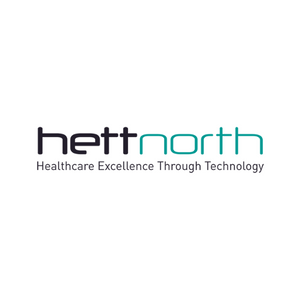Efficiency is the cornerstone of an effective healthcare system, and in an era of rapid technological advancements, optimising healthcare delivery has become paramount. In this blog, we will delve into five key steps that healthcare providers can take to enhance efficiency in delivering care, ultimately improving patient outcomes and satisfaction.
How to Boost Efficiency in Healthcare
-
Embrace Health Information Technologies:
The integration of health information technologies is a transformative step towards enhancing efficiency in healthcare delivery. Electronic Health Records (EHRs), telehealth platforms, and other digital tools streamline the flow of information, reducing the likelihood of errors and delays.
By adopting EHR systems, healthcare providers can centralise patient data, enabling seamless communication between different departments and healthcare professionals. This not only facilitates quicker access to critical information but also enhances coordination of care, leading to more efficient and informed decision-making.
Telehealth, another essential technology, allows for remote consultations, reducing the need for in-person visits and minimising wait times. Incorporating these technologies into daily practice not only accelerates healthcare delivery but also improves overall patient satisfaction.
-
Implement Workflow Optimisation:
Efficiency in healthcare delivery is closely linked to the optimisation of workflows. Assessing and streamlining processes within healthcare facilities can significantly reduce wait times, enhance staff productivity, and improve patient experiences.
This may involve the reevaluation of appointment scheduling systems, implementation of task automation, and the introduction of performance metrics to identify bottlenecks in the workflow. By analysing and optimising these processes, healthcare providers can ensure a smoother, more efficient journey for both patients and healthcare professionals.
-
Foster Interoperability and Collaboration:
The future of healthcare delivery hinges on interoperability and collaboration among various healthcare entities. Establishing seamless communication channels between hospitals, clinics, laboratories, and other healthcare providers is crucial for efficient care coordination.
Interoperability ensures that patient information can be easily accessed and shared across different platforms, reducing redundant tests and facilitating quicker decision-making. Collaborative tools and platforms enable healthcare professionals to work together more effectively, leading to more efficient and holistic patient care.
-
Prioritise Preventive Care and Population Health Management:
Shifting the focus towards preventive care and population health management is a strategic step in increasing efficiency in healthcare delivery. By identifying and addressing health issues at an early stage, healthcare providers can prevent the progression of diseases, reduce the burden on emergency services, and improve overall community health.
Population health management involves the use of data analytics to identify at-risk populations and tailor interventions accordingly. This proactive approach not only enhances the overall health of the community but also reduces the strain on healthcare resources, resulting in a more efficient and sustainable healthcare system.
-
Invest in Training and Education:
Ensuring that healthcare professionals are well-trained and continuously educated in the latest technologies and best practices is essential for boosting efficiency. Investing in ongoing training programs enables staff to adapt to new technologies, stay updated on industry advancements, and optimize their workflows.
Moreover, a well-trained workforce is better equipped to handle the increasing demands of the healthcare sector, resulting in improved patient care and satisfaction. Training programs can cover a range of topics, from the effective use of electronic health records to mastering communication skills, ultimately contributing to a more efficient and patient-centered healthcare delivery.
Boosting Efficiency in Healthcare
Efficiency in healthcare delivery is an ongoing pursuit that requires a strategic combination of technological integration, workflow optimisation, collaboration, preventive care, and continuous education. By embracing these five steps, healthcare providers can not only streamline their operations but also enhance the overall patient experience and outcomes. As the healthcare landscape continues to evolve, prioritising efficiency will be instrumental in building a more resilient, responsive, and patient-centric healthcare system.
Find out More about Boosting Efficiency in Healthcare at HETT North
Join us at HETT North on 28th February in Manchester to find out more about boosting efficiency in healthcare.
Register for your FREE pass now to enjoy:
- 40+ hours of CPD-accredited content across 6 content streams
- 100+ innovative suppliers
- 1-2-1 meeting opportunities with over 1,400 like-minded peers
- 100+ expert speakers
%20(1).png?width=500&height=58&name=HETT%20insights%20logo%20RGB-04%20(1)%20(1).png)


